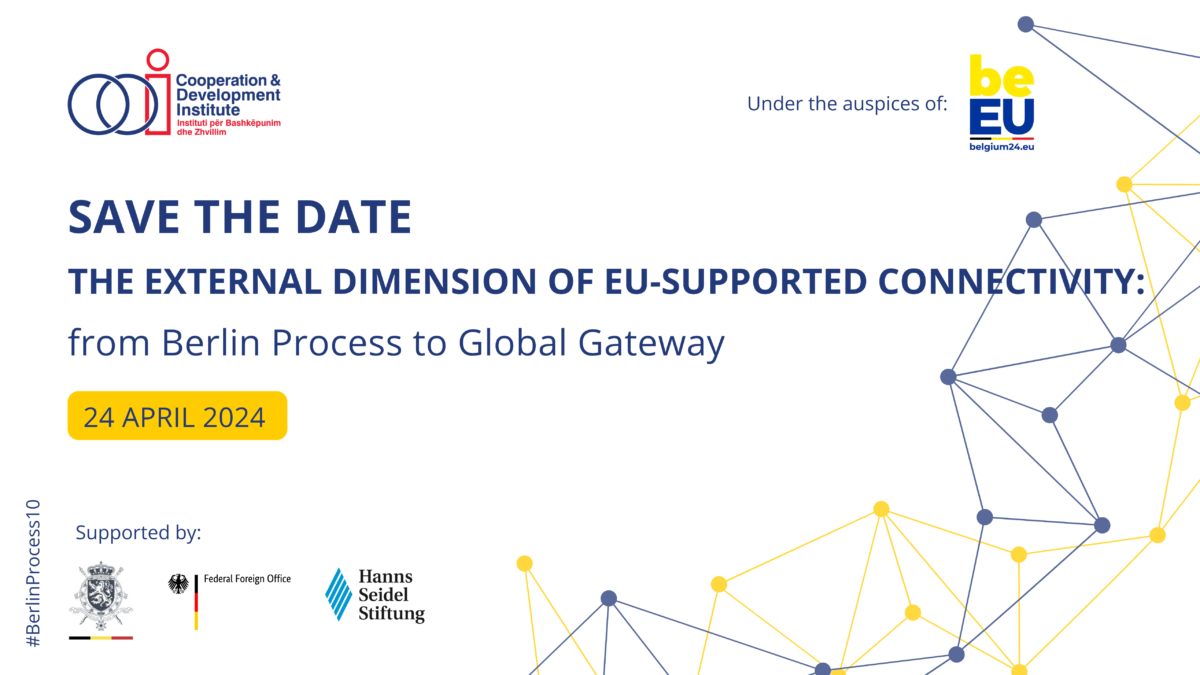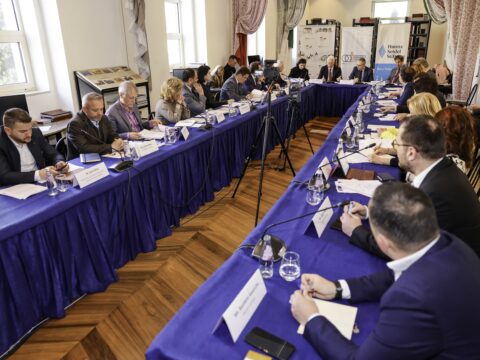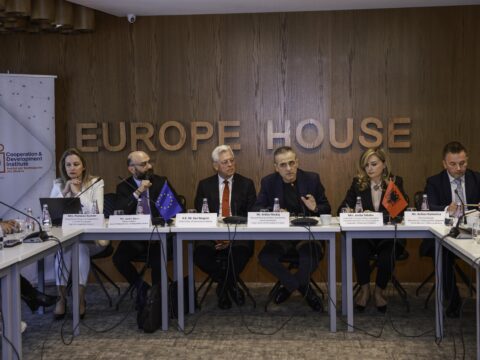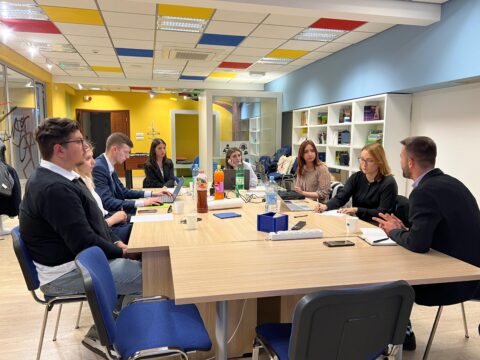Against the backdrop of increased geopolitical tensions, the connectivity-based EU Global Gateway initiative constitutes “…an incredibly important geopolitical tool..” available to the Union when expanding and intensifying its partnerships with 3rd countries.
Embeddement of multi-layered connectivity in EU relations with non-EU countries, has been implemented since 2014 in the framework of Berlin Process (BP) vis-à-vis Western Balkans Six (WB6). A catalyst of EU Enlargement, BP integrates the political will provided by “willing Member States” and by EU, with the Commission expertise and assistance, and the International Financial Institutions (IFI) financial leverage, to support connectivity in and with WB6 and regional cooperation.
BP has been providing political steering and support to EU Connectivity Agenda (CA) – now part of the EU Economic and Investment Plan for the Western Balkans (EIP). Since 2015 EU has co-financed in WB6 more than 85 connectivity infrastructure projects in transport, energy, digital, environment, etc for a total of EUR 7,7bn in grant support (without counting IFI-leveraged loans). Out of those, six EU Connectivity Agenda projects are part of the EU Global Gateway. This collection of ongoing connectivity projects is a valuable repository of cases for learning and analysis.
Developments such as the integration of Corridor VIII (which links the Black Sea with Adriatic Sea through NATO member countries) into the EU TEN-T networks, or the imposition of Growth Plan conditionality on EU financial support to WB6 infrastructure projects illustrate the growing prominence of multifaceted connectivity in the European Union’s relations in its close neighbourhood.
This kind of connectivity creates a unified framework of EU-driven regulations, norms, and standards. Well beyond roads, bridges, energy or digital networks, it also encompasses people-to-people, business- to-business, and institution-to-institution links between WB6 and EU.
WB6 experience holds unique insights for the EU and for its Member States. After 10 years of Western Balkans experience, EU-supported infrastructure projects in the region provide valuable lessons learnt that can be used in other world regions covered by Global Gateway.
How connectivity can be weaved into EU external relations? What are its comparative advantages when facing competition? How EU good governance practice and norms can contribute to partner countries’ development? What can be learned from the Berlin Process when embedding political will in EU infrastructure support in 3rd countries?
To start a debate on those issues, Cooperation and Development Institute (CDI) is organising a half-day conference on 24 April 2024. Its focus will be on deconstructing WB6 connectivity best cases and discussing on how they can be adapted for and upscaled into the global context of Global Gateway.
The conference will bring together policymakers from the EU, EU Member States, and WB6, along with think tank representatives, representatives from international financial institutions (IFIs), and regional cooperation structures, and practitioners. During this gathering, participants will share their perspectives, engage in discussions, and come up with proposals.
This event is under the auspices of the Belgian Presidency of the EU Council, and supported by the Belgian Ministry of Foreign Affairs, Hanns Seidel Foundation and German Federal Foreign Office.
The conference is upon invitation only. The first part is a public session and the second part is closed (under the Chatham House Rule). To access the agenda, please click here.






